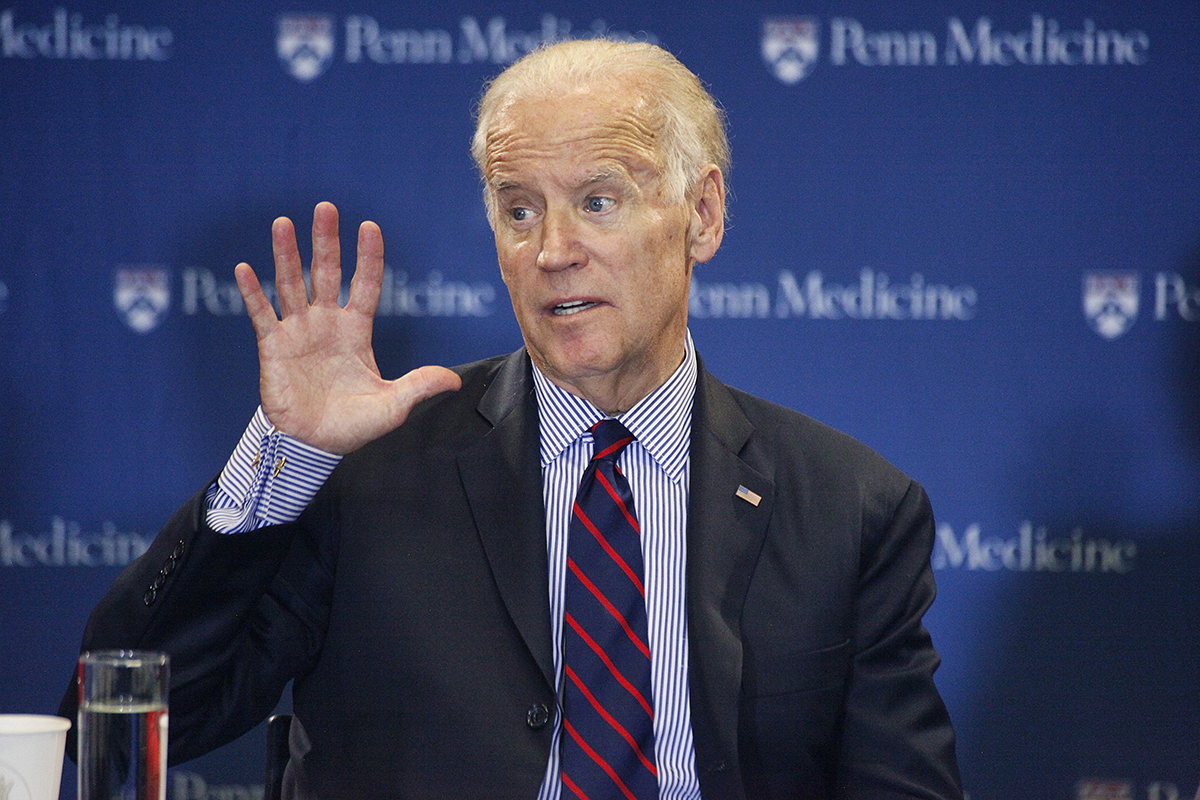Expert Panel Releases Recommendations for Biden’s Cancer Moonshot Initiative

Photo via AP/Star Shooter/MediaPunch/IPX
A panel of experts unveiled Wednesday an ambitious 10-part plan for achieving a decade’s worth of progress against cancer in only half that time, by streamlining data and research processes, developing new treatment avenues, and improving prevention tactics.
The recommendations, part of the Blue Ribbon Panel Report, are the latest step in Vice President Joe Biden’s Cancer Moonshot initiative, which has been discussed with much pomp and circumstance, if little specificity, since its announcement. The recommendations may help crystallize the focus of what Biden has called the start of a “genuine global commitment to end cancer as we know it today.”
The panel—which is co-chaired by Koch Institute Director Tyler Jacks, and also includes local experts from Dana-Farber Cancer Institute, the Broad Institute, Harvard Medical School, Massachusetts General Hospital, and the National Brain Tumor Society—suggests that the Moonshot focus on 10 different areas of cancer research, treatment, and prevention. They include:
1. Streamlining the clinical trial process. The panel suggests building a national network that would provide individuals with a genetic profile of their disease, and allow them to easily register for relevant trials. Researchers would also be able to track outcomes through the network and use them in studies.
2. Creating trial networks dedicated to immunotherapy. “Unleashing a patient’s own immune system to attack cancer is transforming cancer treatment,” the report says. “But, understanding why these promising immunotherapies work in only some patients will take intensive research before more patients can benefit.”
3. Circumventing drug resistance. Many patients eventually become resistant to the drugs that could save them. Preventing that fate may save more lives.
4. Building a national database. “A national ecosystem that links many of the nation’s largest data repositories would enable one-stop, free access for researchers, doctors, and patients to share data on cancer and fuel faster progress,” the report says.
5. Ramping up pediatric cancer research. The experts call for more research into oncoproteins, which are known to be one of the major drivers of childhood cancer development.
6. Minimizing treatment side effects. Reducing the painful side effects of cancer therapy could help “patients stay on their drug regimens and improve their quality of life.”
7. Improving cancer prevention efforts. The experts call not only for better screening of hereditary cancers, but for finding new, better ways of encouraging habits that are already known to help keep disease at bay, such as avoiding tobacco and getting the HPV vaccine.
8. Using patient data more effectively. Comparing the treatments and outcomes of patients with the same type of cancer may help doctors understand what works and what doesn’t, and which patients are appropriate for experimental therapies.
9. Developing a “3D cancer atlas.” The experts hope, eventually, to develop “predictive models of tumor progression and response to treatment” that will give oncologists insight beyond what is currently available.
10. Finding new treatments. Perhaps most obviously and most importantly, the Blue Ribbon Panel calls for “increased public-private sector collaboration to develop new tools or refine technologies that are showing remarkable promise.” Particularly, the committee is interested in implantable devices that deliver drugs straight to a tumor, and in better imaging technology.
Read the full report here.


